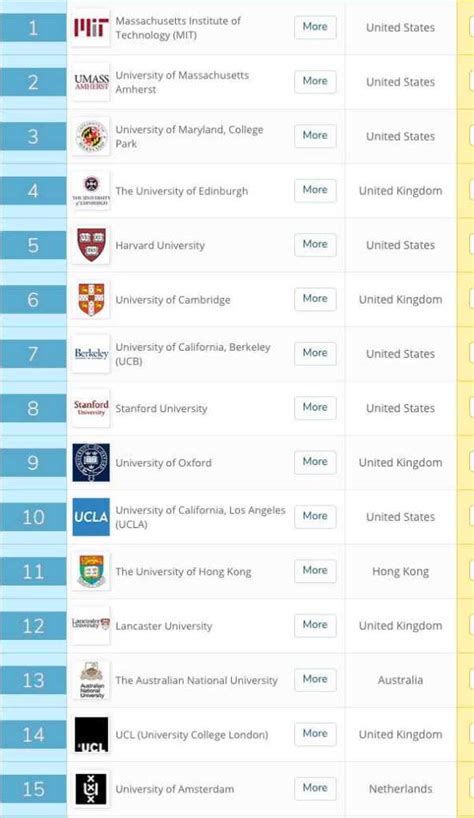Are you fascinated by the way language shapes our thoughts and behaviors? Do you want to explore the intricate connections between language, cognition, and culture? If so, you’re in the right place. In this blog post, we’ll delve into the captivating field of cognitive linguistics and its significance in today’s academic landscape. We’ll discuss why cognitive linguistics is considered an interdisciplinary field, and why it’s crucial for understanding human communication and the mind. Moreover, we’ll highlight top US universities that offer esteemed cognitive linguistics programs, and provide insights into their program structures, faculty expertise, and the myriad of internship and career opportunities available for graduates. Through student testimonials, we’ll gain a firsthand understanding of the experiences in cognitive linguistics programs, and how these programs facilitate networking, collaboration, research, and publication opportunities. So, join us as we embark on a journey to explore the mind through the lens of cognitive linguistics.
Table of Contents
Introduction to Cognitive Linguistics
Cognitive Linguistics is an interdisciplinary field that seeks to understand the relationship between language and the human mind. It explores how language is inherently linked to cognitive processes, and how our mental faculties shape the way we perceive and produce language. By examining the symbolic and communicative function of language, cognitive linguistics aims to uncover the underlying mechanisms that govern our use of language in everyday life.
In essence, cognitive linguistics offers a fresh perspective on language, challenging traditional theories and approaches to linguistic analysis. Rather than treating language as a static set of rules and structures, cognitive linguistics highlights the dynamic and conceptual nature of language, emphasizing the role of cognition in shaping linguistic phenomena.
Through the lens of cognitive linguistics, researchers investigate how human beings conceptualize and categorize their experiences through language, shedding light on the intricate connection between language, thought, and culture. This novel approach has paved the way for innovative research in areas such as metaphor, semantics, and linguistic relativity, expanding our comprehension of how language shapes our understanding of the world.
As a burgeoning field with the potential to revolutionize the way we perceive and analyze language, cognitive linguistics holds great promise for scholars and enthusiasts alike.
Cognitive Linguistics: An Interdisciplinary Field
Cognitive linguistics is an interdisciplinary field that combines principles of linguistics and cognitive science to understand the relationship between language and cognition. It seeks to explore how language shapes our thoughts, and how our cognitive processes influence the way we use language. This field draws on concepts from psychology, philosophy, anthropology, and neuroscience to provide a holistic understanding of human language and communication.
One of the key aspects of cognitive linguistics is its focus on understanding language as a reflection of human cognition, rather than as an abstract system separate from other mental processes. By studying the cognitive mechanisms underlying the production and comprehension of language, researchers in this field are able to uncover the intricate connections between language and the human mind.
Moreover, cognitive linguistics provides a platform for interdisciplinary collaboration, allowing scholars from diverse academic backgrounds to come together and contribute their expertise to the study of language and cognition. This collaborative approach enables researchers to develop comprehensive theories and methodologies that incorporate insights from multiple disciplines, enriching the study of language and cognition.
Overall, cognitive linguistics offers a unique perspective on the relationship between language and cognition, employing an interdisciplinary approach to unravel the complexities of human communication and thought processes. Its integration of insights from linguistics, psychology, neuroscience, philosophy, and anthropology makes it a dynamic and multifaceted field with broad implications for our understanding of human language and cognition.
Cognitive Linguistics Programs: Why They Matter
For individuals interested in the study of cognitive linguistics, enrolling in a formal program can be incredibly beneficial. These programs provide a structured and comprehensive approach to understanding the intricate relationship between language and cognition. Through a combination of coursework, research opportunities, and faculty expertise, cognitive linguistics programs offer a deep dive into this interdisciplinary field.
One of the primary reasons why cognitive linguistics programs matter is the opportunity for in-depth study and exploration. Students are able to engage with a wide range of topics within the field, including semantics, syntax, and cognitive science. This comprehensive approach allows for a holistic understanding of how language is processed, produced, and understood by the human mind.
Additionally, cognitive linguistics programs often provide valuable research and publication opportunities. Students have the chance to collaborate with faculty members on groundbreaking research projects, as well as pursue their own independent studies. This hands-on experience not only enhances their understanding of cognitive linguistics but also prepares them for future career opportunities.
Furthermore, these programs offer networking and collaboration opportunities. Students have the chance to connect with like-minded peers, faculty members, and professionals in the field. This network can be invaluable for future career prospects, as well as for ongoing collaboration and research endeavors.
Top US Universities Offering Cognitive Linguistics
When it comes to pursuing a degree in cognitive linguistics, choosing the right university is crucial. Fortunately, there are several top universities in the United States that offer exceptional programs in this interdisciplinary field.
One such university is Stanford University, known for its renowned cognitive linguistics program. With a distinguished faculty and cutting-edge research opportunities, Stanford provides students with a comprehensive education in this field.
Another top US university offering cognitive linguistics is the University of California, Berkeley. As a leader in cognitive science research, Berkeley provides students with a rich and stimulating academic environment, along with access to numerous resources and internship opportunities.
Additionally, Harvard University boasts a strong cognitive linguistics program, with a focus on both theoretical and practical applications. Students at Harvard benefit from engaging coursework and collaboration with leading experts in the field, making it a top choice for those interested in cognitive linguistics.
Program Structure: Coursework and Research Opportunities
When considering a program in cognitive linguistics, it’s important to understand the structure of the coursework and the research opportunities that are available. The program structure typically involves a combination of core courses, electives, and research components.
Students will often start with foundational courses in cognitive linguistics, which provide an introduction to the key concepts and theories in the field. These courses may cover topics such as language and cognition, embodiment, and the relationship between language and thought.
As students advance in the program, they may have the opportunity to take more specialized courses in areas such as cognitive semantics, discourse analysis, and psycholinguistics. These courses allow students to delve deeper into specific areas of interest within cognitive linguistics.
In addition to coursework, most programs also offer research opportunities for students to engage in independent or collaborative projects. These opportunities may include conducting experiments, analyzing data, or writing a thesis. Students may also have the chance to work closely with faculty members on ongoing research projects, providing valuable hands-on experience in the field.
Faculty Expertise: Leaders in Cognitive Linguistics
When it comes to pursuing a degree in cognitive linguistics, one of the most important factors to consider is the expertise of the faculty members in the program. The leaders in the field of cognitive linguistics play a crucial role in shaping the education and research opportunities available to students, as well as providing mentorship and guidance.
At top universities offering cognitive linguistics programs, the faculty expertise is often diverse, with professors who are at the forefront of research and scholarship in areas such as language acquisition, cognitive science, and psycholinguistics. These leaders bring a wealth of knowledge and experience to the classroom, offering students the opportunity to engage with cutting-edge developments in the field.
Faculty members in cognitive linguistics programs are not only experts in their respective areas of focus, but they also serve as mentors and advisors to students. Their leadership and guidance are essential in helping students navigate the complexities of the field and develop their own research interests and projects. The mentorship provided by faculty leaders is invaluable in preparing students for future careers in academia, research, and beyond.
Additionally, the expertise of the faculty in cognitive linguistics programs extends beyond the classroom, as these leaders are often actively involved in research and publication opportunities. Students benefit from the chance to collaborate with faculty on research projects, contributing to the advancement of knowledge in the field. The mentorship and collaboration opportunities provided by faculty expertise make cognitive linguistics programs an ideal environment for aspiring scholars and researchers.
Internship and Career Opportunities for Cognitive Linguistics Graduates
Graduating with a degree in Cognitive Linguistics opens up a variety of exciting internship and career opportunities for graduates. Many organizations and companies are increasingly recognizing the value of individuals with expertise in cognitive linguistics, as they can provide unique insights into language and communication. Whether you’re interested in academia, research, education, technology, or business, there are numerous pathways available for cognitive linguistics graduates.
Internship opportunities for cognitive linguistics graduates can be found in a wide range of fields, including language technology companies, educational institutions, research organizations, and government agencies. These internships provide valuable hands-on experience and the opportunity to apply theoretical knowledge to real-world situations. For example, many tech companies are actively seeking cognitive linguistics students to work on natural language processing and artificial intelligence projects.
Career paths for cognitive linguistics graduates are diverse and can lead to rewarding positions in academia, research institutions, language technology companies, publishing, consulting, and more. Strong analytical, critical thinking, and communication skills are highly valued in these fields, making cognitive linguistics graduates attractive candidates for employers.
Having a degree in cognitive linguistics can also open doors to specialized roles, such as computational linguistics, user experience research, content strategy, language teaching, and cognitive psychology. The interdisciplinary nature of cognitive linguistics allows graduates to apply their expertise in various domains, making them adaptable and valuable contributors in today’s job market.
Research and Publication Opportunities in Cognitive Linguistics
When considering a graduate program in Cognitive Linguistics, it is important to evaluate the research and publication opportunities available to students. Research is a key component of any graduate program, providing students with the opportunity to delve deeper into their areas of interest and contribute to the field’s body of knowledge. In the field of Cognitive Linguistics, there are a wide variety of research opportunities available, ranging from hands-on experimentation to theoretical analysis.
Conducting research in Cognitive Linguistics often involves working closely with faculty members who are conducting their own published studies in the field. These collaborations can provide students with invaluable mentorship and guidance, as well as opportunities to contribute to publications and present their findings at academic conferences.
Furthermore, many Cognitive Linguistics graduate programs offer specific courses and seminars focused on publication and academic writing. These courses can provide students with the skills and knowledge needed to produce high-quality research papers and articles, which can then be submitted to academic journals and other publications.
Overall, the research and publication opportunities available in Cognitive Linguistics programs are vast, offering students the chance to engage deeply with the field and contribute meaningfully to its academic discourse.
Networking and Collaboration in Cognitive Linguistics Programs
When it comes to pursuing a degree in cognitive linguistics, networking and collaboration play a crucial role in shaping the academic and professional career of students. The field of cognitive linguistics is an interdisciplinary one, encompassing the study of language, cognition, and communication. As such, students in cognitive linguistics programs have the opportunity to collaborate with peers and faculty from diverse academic backgrounds, including psychology, neuroscience, anthropology, and computer science.
One of the key benefits of networking and collaboration in cognitive linguistics programs is the exposure to different perspectives and methods. By engaging with researchers and students from various disciplines, individuals can gain valuable insights and approaches to studying language and cognition. This interdisciplinarity fosters a rich learning environment where innovative ideas and research can flourish.
Furthermore, networking and collaboration in cognitive linguistics programs extend beyond the academic setting. Students have the opportunity to connect with professionals in the field through conferences, workshops, and research projects. These connections can pave the way for internships, career opportunities, and collaborative research endeavors, ultimately enriching the academic and professional journey of students.
Overall, networking and collaboration are integral components of cognitive linguistics programs, offering students the chance to engage with a diverse community of scholars, researchers, and practitioners. Through these connections, individuals can expand their knowledge, skills, and professional network, ultimately contributing to the advancement of cognitive linguistics as a dynamic and evolving field.
Student Testimonials: Experiences in Cognitive Linguistics Programs
As a student in a cognitive linguistics program, I have had the opportunity to engage in a variety of stimulating academic and professional experiences. Throughout my time in the program, I have been able to develop a deep understanding of the intricate connection between language and cognition, and how this connection impacts human communication and understanding.
One of the most valuable aspects of my experience has been the opportunity to work closely with esteemed faculty members who are leaders in the field of cognitive linguistics. Their guidance and expertise have been instrumental in shaping my academic journey and helping me explore various research opportunities.
Aside from the academic aspect, being a part of a cognitive linguistics program has also allowed me to gain practical experience through internship opportunities. These experiences have given me a chance to apply the knowledge I’ve gained in the program to real-world situations, further solidifying my understanding of cognitive linguistics and its applications.
Overall, my time in a cognitive linguistics program has been incredibly enriching, and I am confident that the skills and knowledge I have gained will be invaluable as I pursue a career in this dynamic and interdisciplinary field.






